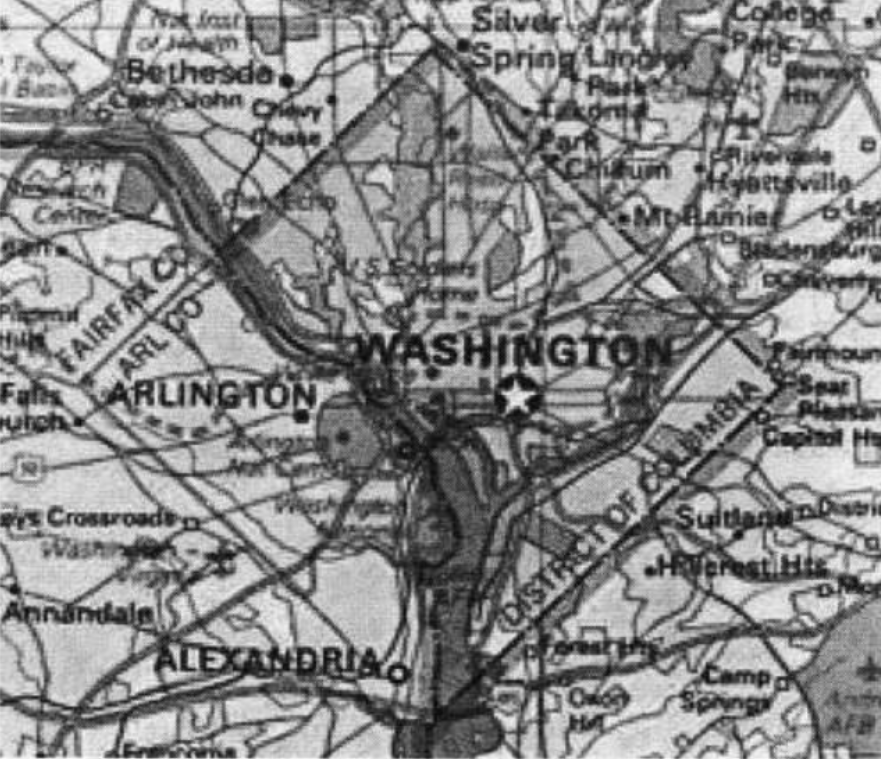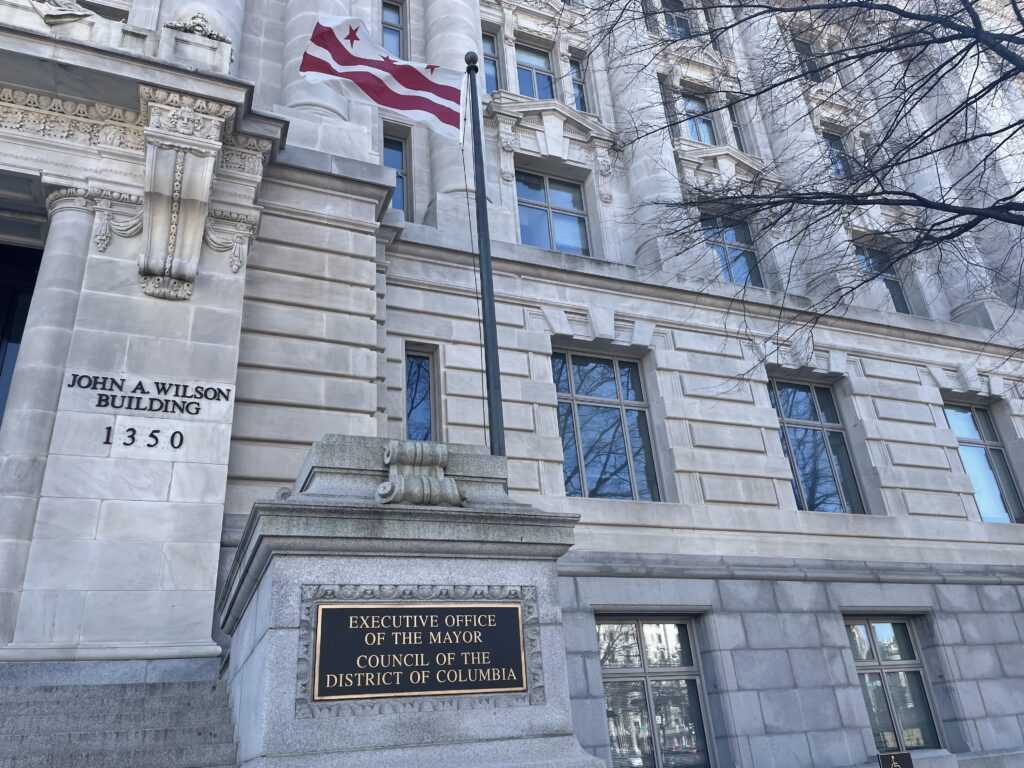The year 1984 was marked by the success of the District’s Initiative 17, which established a right to shelter. It was a political and legal milestone, but enforcing that right proved difficult. The six years the law was on the books-the initiative was repealed in 1990- was a stream of lawsuits against the District government by advocates to force the city to comply with the law.
In some areas covered by the cases, there appeared to be little immediate improvement in conditions for the homeless. A November 1993, report by the Washington Legal Clinic for the Homeless (WLCH0 called the D.C. government “startlingly derelict in its administration of statutorily required social services.”
But the mid-80’s also produced more visible and tangible progress, perhaps most significantly with the federal Stewart B. McKinney Homeless Assistance Act in 1987. The broad support for the legislation-sponsorship by leaders of both parties and backing in both houses of Congress that was large enough to override a potential veto by President Ronald Reagan-was evidence of the high visibility of homelessness as a national issue. It was seen as a “national crisis,” Maria Foscarinis, currently the executive director of the National Law Center on Homelessness and Poverty, recalled recently.
In the District, the apparent leverage of Initiative 17 generated a strong legal response. Frank Trinity, then a WLCH staff attorney, said in a recent interview that the D.C. bar put a “staggering“ amount of resources into pro bono efforts. Law firms’ associates and partners were “coming out at night to meet with homeless people” and monitor the city’s legal compliance, he said.
The lawyers had their work cut out for them. In one key case, Atchison v. Barry-cited in the WLCH report-the court described District-run shelters as “virtual hell-holes.” Among the many deficiencies, the court said, were cots and mattresses that “retain blood and pus from open festering wounds, or vomit, phlegm, sputum, and the like.” The beds become a breeding ground for mites, lice, and other parasites, the court said.
The two sides in the case negotiated a consent decree, but the court found the District’s compliance to be “sporadic and tardy.” The failure to live up to the decree led to $4 million in contempt fines-an amount, WLCH said, that “could unquestionably have bought full compliance” with the decree.
In another case, Washington Legal Clinic for the Homeless v. Kelly, the District withdrew its emergency-shelter program from a joint effort with the U.S. government so that the D.C. government could not be compelled to meet federal requirements-and could not be sued for failing to meet them. (Sharon Pratt Kelly succeeded Marion Barry as mayor in 1991.) By the District’s own estimate, it lost $1.4 million in U.S. funds through the withdrawal.
Advocates for the homeless fared better in national legislation with the passage of the McKinney Act. (The legislation, originally known as the Urgent Relief for the Homeless Act, was renamed for McKinney, a Connecticut Republican who was a principal co-sponsor, after he died in 1987.) During the winter of 1986-87, advocates had worked to build support for the bill. Their effort included “sleep-outs,” which were joined by McKinney’ and other high-profile supporters.
“We needed a non-traditional way to get attention,” said Michael Stoops, now the action executive director of the National Coalition for the Homeless.
The act authorized federal funding for homeless people’s health care, education, transitional housing, and other needs.
Foscarinis, a principal architect of the bill, said it was the first-and is still the only-major federal legislation addressing homelessness. Its spending has grown from an initial $350 million a year to $1.4 billion a year, she said.
But, she said, the act is limited, focusing largely on the more immediate needs of homeless people. That is because it was only one title of a larger piece of legislation, and the second and third titles never were enacted. A critical missing piece is a focus on longer term strategies to secure and maintain housing she said.
Along those lines, advocates in 1989 organized the Housing Now! March and really in the District. Stoops said about 200,000 people participated, and the number included celebrities such as Stevie Wonder and Tracy Chapmen. More important, he said, is that there were about 25,000 homeless people.
A major blow to the homeless movement, both national and local, came in 1990 with the suicide of Mitch Snyder. In July, he was found hanged at the shelter run by his organization, the Community for Creative None-Violence (CCNV).
Snyder was the best-known homeless advocate in the country, particularly after he was the subject of a 1986 television movie. He also received at least one offer of an honorary degree. A collection of his papers t George Washington University’s Gelman Library includes a letter from the chancellor of the State University of New York making the offer.
Snyder passed it on to his mother, with a note saying, “I thought you’d get a kick out of this.” He continued, “I turned it down of course. I don’t accept honors or awards for doing what everyone else should be doing.”
He drew criticism for some his confrontational tactics, and there were reports of drug and alcohol use at CCNV. But Chery Barnes-who was homeless for many years and lived at CCNV during Snyder’s time there -said that residents could go to a nearby park to smoke crack and marijuana, but that Snyder’s message was ‘Whatever you do, respect the building: this is your home.”
Shortly before Snyder’s death, the D.C. City Council repealed the shelter law that initiative 17 had put in place. According to the WLCH report, “Ironically, the Executive Branch used the fact of the substantial contempt fines it was paying to pressure the Legislative Branch to repeal the law.”
Snyder and others placed the issue back on the initiative ballot. But the proposal that had drawn 72% support in 1984 could not muster 50% in 1990.
Next Month: Part III, 1994-Present








